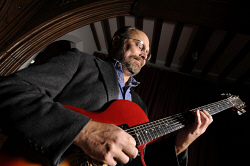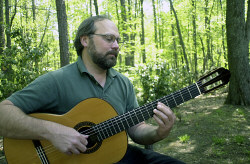Articles, article-reviews, and responses.
“Performing Agency: A Response,” Music Theory Online 24/3 (September 2018): http://mtosmt.org/issues/mto.18.24.3/mto.18.24.3.zbikowski.html
“Conceptual Blending, Creativity, and Music,” Musiae Scientiae 22/1 (March 2018): 6-23. This article is part of a special issue on creative conceptual blending in music; guest editors Emilios Cambouropoulos, Danae Stefanou, and Costas Tsougras. (pdf)
Review of Elizabeth Margulis’s On Repeat: How Music Plays the Mind, Music Theory Spectrum 39/1 (Spring 2017): 124-130. (pdf)
“Reflections on Words and Music,” Dansk Musikforskning Online/Saernummer 2016, Danish Musicology Online/Special Edition 2016, Word And Music Studies—New Paths, New Methods, 5-13 (www.danishmusicologyonline.dk). (pdf)
Review of Schubert (Re)Inventions (a recording by Ensemble Palladino), Nineteenth-Century Music Review 14:2 (August 2017), 271-274. [Published online 29 November 2016: https//doi.org/10.1017/S1479409816000525] (pdf)
“Remembering Music,” Dutch Journal of Music Theory 17: 3 (2012): 137-154. (pdf)
“Music, Dance, and Meaning in the Early Nineteenth Century,” Journal of Musicological Research 31:2-3 (2012): 147-165. (pdf)
“Music, Language, and What Falls in Between,” Ethnomusicology 56/1 (Winter 2012): 125-131. This brief essay is a response to Francesca R. Sborgi Lawson’s "Consilience Revisited: Musical and Scientific Responses to Chinese Performance,” published in the same issue. (pdf)
“Music Theory, Music History, and Quicksand,” Music Theory Spectrum 33/2 (Fall 2011): 226-228. This brief essay is a response to Richard Taruskin’s “Catching up with Rimsky-Korsakov,” published in the same issue. (pdf)
“Music, Emotion, Analysis,” Music Analysis 29/i-ii-iii (2011): 37-60. (pdf)
“An Introduction to voiceXchange,” voiceXchange 3/1 (Spring 2009): 1-2. (pdf)
“Ole Kuehl’s Musical Semantics: Cognitive Musicology and the Challenge of Musical Meaning,” Musicae Scientiae 13/2 (Fall 2009): 441-473. (pdf)
“Musicology, Cognitive Science, and Metaphor: Reflections on Michael Spitzer’s Metaphor and Musical Thought,” Musica Humana 1/1 (2009): 81-104. (pdf)
“Aspects of Meaning Construction in Music: Toward a Grammar of Music,” prepared for Almen Semiotik 17 but journal ceased publication. (pdf)
“Music Theory, Multimedia, and the Construction of Meaning” (invited review of Nicholas Cook’s Analysing Musical Multimedia), Intégral 16/17 (2002/2003) [published summer 2005]: 251-268. (pdf)
“Modelling the Groove: Conceptual Structure and Popular Music,” the Journal of the Royal Musical Association 129/2 (December 2004): 272-297. (pdf) Reprinted in Pop Music and Easy Listening, ed. Stan Hawkins (Farnham, Surrey, England: Ashgate Publishing, 2011): 241-266.
Review of Taylor Aitken Greer, A Question of Balance: Charles Seeger’s Philosophy of Music, Music Theory Spectrum 26/2 (Fall 2004): 305-313. (pdf)
“Des Herzraums Abschied: Mark Johnson’s Theory of Embodied Knowledge and Music Theory,” Theory and Practice 22-23 (1997-98; published Autumn 2000): 1-16. (pdf)
“The Blossoms of ‘Trockne Blumen’: Music and Text in the Early Nineteenth Century,” Music Analysis 18/3 (October 1999): 307-345. (pdf)
“Musical Coherence, Motive, and Categorization,” Music Perception 17/1 (Fall 1999): 5-42. (pdf)
“Metaphor and Music Theory: Reflections from Cognitive Science,” Music Theory Online 4/1 (January 1998) http://www.mtosmt.org/issues/mto.98.4.1/mto.98.4.1.zbikowski.html.
“Conceptual Models and Cross-Domain Mapping: New Perspectives on Theories of Music and Hierarchy,” the Journal of Music Theory 41/2 (Fall 1997): 193-225. (pdf)
“Musical Concepts and Categories,” Music Theory Online 1/4 (July 1995) http://www.mtosmt.org/issues/mto.95.1.4/mto.95.1.4.zbikowski.html.
“Cooperative Learning in the Music Theory Classroom,” with Dr. Charles K. Long; the Journal of Music Theory Pedagogy 8 (1994): 135-157. (pdf)
Review-article on Eugene Narmour’s The Analysis and Cognition of Basic Melodic Structures for the Journal of Music Theory 37/1 (Spring 1993): 177-206. (pdf)


 I have a range of experience as a practical musician. In recent solo concerts I have performed works by Augustin Barrios, Richard Rodney Bennett, Peter Maxwell Davies, John Dowland, John Duarte, Manual M. Ponce, Giulio Regondi, Joaquin Rodrigo, Franz Schubert, Vicente Sojo, Domenico Scarlatti, Fernando Sor, Toru Takemitsu, and Heitor Villa-Lobos.
I have a range of experience as a practical musician. In recent solo concerts I have performed works by Augustin Barrios, Richard Rodney Bennett, Peter Maxwell Davies, John Dowland, John Duarte, Manual M. Ponce, Giulio Regondi, Joaquin Rodrigo, Franz Schubert, Vicente Sojo, Domenico Scarlatti, Fernando Sor, Toru Takemitsu, and Heitor Villa-Lobos.